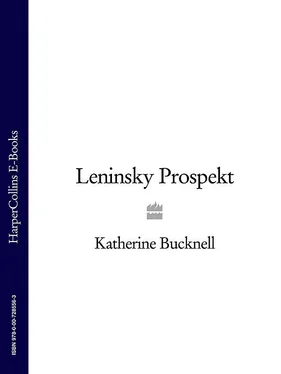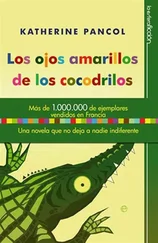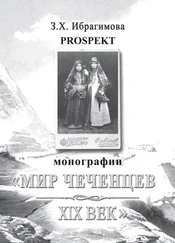KATHERINE BUCKNELL
For my mother and father and for Uncle Tom
Title Page KATHERINE BUCKNELL
Dedication For my mother and father and for Uncle Tom
Leninsky Prospekt LENINSKY PROSPEKT
Viktor was thinking about trees October 6,1962 October 9 Over the next few days October 14 October 17 October 19 October 20 October 21 October 22 October 23 October 24 October 25 October 26–October 27 October 28 About the Author Praise Also by Katherine Bucknell Copyright About the Publisher
LENINSKY PROSPEKT
Viktor was thinking about trees. He leaned back as far as he could and he saw brightness flash and move through his blindfold as the van heaved and tossed its way through whatever streets these were, and he imagined that he could see flickering translucent leaves turning and trembling in their thousands above him, layer upon soaring layer, spiralling up to the blue sky which he knew must lie beyond. It opened his head, what he could imagine today, with the continual changes in air, the thin real light and the ordinary city noises that he associated with Moscow and home. He resisted wondering exactly where he was or why he was being moved. Instead, he journeyed in his thoughts, along a rutted country road lined with white-trunked birch, their peeling bark showing black scored stripes and pink tree flesh among their chalky, breeze-twisted leaves. Beyond the birch, straight, taller firs with their sober-needled boughs marshalled the blue depths of the forest.
The road bent away in front until it was lost to view; he might make it hours still before he arrived at the little dacha, with its polished dark wood walls, its brick chimney, smoke twitching the nostrils, the chairs positioned on the veranda in the last patch of sun, his books and papers on the desk inside where he had left them, his pen still uncapped, the line to finish. Maybe she would be waiting outside, alert on the chair which she favoured, looking out for him. Or, no. Maybe she would be lying on the blowsy red sofa, by the desk, her feet up, reading a book, fidgeting with the splayed brown ends of her braids.
These were savoured images. For months, years, now, going over them and over them, Viktor had found he could make them more detailed, more real. He believed he could probably go on doing this for ever, but he had realized early on that he must be careful not to discover whether he was right. He must be careful not to find himself at the end of his resources. For instance, he tried not to find words for these images; whenever he had pencil and paper, he didn’t write about them. Instead, he forced himself to begin making new images, new scenes to turn to, before he could tire of the ones he loved best. He kept his mind moving, fresh, alive, by planning poems but not writing them down until he had an idea for a new one, a better one. Like a cook, he was always preparing something for himself to look forward to, to indulge himself in, even though he had to cook without meat or even a carrot or an onion for his pot. The feeling of anticipation was deeply pleasurable to Viktor; the feeling of nostalgia was not. He never allowed himself to consider what he had lost. Regret weakened him.
And he never allowed himself to get close to her, close enough, say, to reach for her. He knew that when tenderness turned to appetite, he couldn’t float his imagination over it, couldn’t lift his mind out of the trap he was in, his body. He was better off with sentimentality, with pictures that he softened on purpose in order to comfort his heart. Physical desire was too hard a struggle.
With such disciplines, he had lasted a total of nearly five years in prison. Once, after the first four years, he had been released, shoved into the open: the clamouring, all-talking, over-bright reality where other people’s trains of thought unpredictably crashed in on his. He had not been allowed back to the institute to continue his research, but a friend helped him get temporary work in the library there. The unregimented hours away from his inner life had made him fretful, as if he were starved of sleep. This, too, he had learned to cope with, but then his freedom hadn’t lasted.
Since returning to prison, he had continually practised engaging with others – exchanging messages and making deals at exercise time, giving impromptu lectures, organizing work strikes, hunger strikes, writing letters of complaint, writing on the walls, until, often, he was put into solitary confinement. And he kept an image ready for freedom. It wasn’t an image that he dared to explore at all; it was only a black dot, like a punctuation mark or a hole, which made his breath come shallow and sharp when he considered, even for the briefest second, that it existed. Still, he wouldn’t allow himself to forget it was there: a possibility, hurtling towards him – liberation, confusion, a kind of death – the moment when he might again feel a certain kind of concern about the actions of others. He feared this moment pressing upon his thoughts more even than flesh, more than the likely slide into depravity that he along with all his fellow prisoners continually risked, through lack of choice, through bondage.
Today, he let himself drive his father’s black Pobeda further than usual along the tree-lined road. He imagined that he had the windows rolled down, until the spreading twilight nipped at his black-haired forearm, muscular as it had once been, lying in the opening atop the car door. To make the trip last longer, he thought again about the leaves, the fractal intricacies of their countless edges, their intimate exchanging of breath with light, with air, as they ceaselessly moved and grew. He didn’t think for a moment about where the van was actually taking him tonight.
October 28 1962 . The tiered, red and gold glory of the crowded Bolshoi was prickling and rustling with tension, and the momentary hush before the start of the Sunday evening programme was suffused with almost liquid anxiety, as if everyone in the theatre was drowning in stage fright. Maybe tonight would be their last night on earth. They shrugged off their wraps, licked their reeds, flexed and stretched their calves, their metatarsals, their hopes. Audience, musicians, dancers in their separated spheres struggled to still themselves, to collect their shuddering thoughts, their gossiping fretful tongues, so they could engage one more time with the grandeur of civilization: why not lose themselves in ballet as the planet mutely spun through its final tilted rotation?
The conductor, his wasp-waisted, black uprightness just visible above the creamy, red-lipped orchestra pit, raised his arms over the fidgeting sea of preparation, pulled it towards him like a tide. His bent wrists, his curled fingers lightly commanded the disciplined glance of his musicians. The conductor was American. The musicians were Soviet, mostly Soviet the audience at his back. The hush fizzed and foamed, expanded to the point of pain, to bursting. Then, with a ruthless intake of breath, a brusque snap of his chin, the conductor simply began.
From the Russian strings and winds rose the Second Movement of Mendelssohn’s ‘Scottish’ Symphony. The red and gold curtain parted, and on the stage American ballet dancers, dressed in kilts and tartan socks, skipped before the whirlwind, bar by measured bar, step by springing step, jaunty, death-defying. Ballet was their mother tongue, and everyone in the Bolshoi that night understood the music, the dance, the ritual of artist and audience.
The performance wrung tears of nostalgia and of rage from Nina Davenport, who bowed her teased and sprayed chestnut flip over her fists, dashed with blanched knuckles at the hollows underneath her mascaraed eyes. It seemed easy, beautiful, obvious – the years of mental and physical devotion flowering in lively complexity on this foreign stage.
Читать дальше












